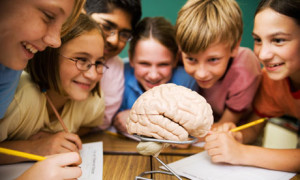What are Study Skills

WHAT ARE STUDY SKILLS?
What are study skills and can they be learned?
How much did you learn at school? It was probably a few years ago – you can probably remember some of the things you learned, but maybe not as much as you should. How did you cope with studying? Did you deal with exams OK, or were you stressed?
We teach English, Maths and Science at school; we teach table manners and how to ride a bike at home; we teach music and sport for recreation; but are we teaching our children how to learn effectively? Is this something that can, or even needs to be taught?
Study skills comprise any skills and strategies we use to learn. As with any other skill set, how we manage and apply them is critical to their effectiveness; and, as with any other skill set, they can be taught.
What are study skills?
Study skills help an individual assess and use information. We need to process and organise information and retain and recall it when necessary in order to benefit from that information when we need to.
Study skills include:
- Getting organised to study: A dedicated space, whether it’s a room or just a well lit desk, a comfortable chair, plenty of storage for books and folders, perhaps a whiteboard or cork board.
- Time management: Poor time management not only leads to ineffective study but contributes to stress and anxiety. Good time management also allows for time away from study for relaxation, sport or other “down time” leading to a fresher more healthful approach to study.
- Resource management: Access to a wide variety of information, books, online resources, teachers or other qualified individuals; knowing how to organise resources effectively for easy access.
- Effective reading skills: Studying invariably involves a great deal of reading and writing. Knowing how to engage with a text, how to discern opinions from facts, prioritising information and concise note taking are all important.
- A variety of study methods: There are many ways to study, some ways suit a particular individual, other methods may be more appropriate for a particular subject: mind maps, mnemonics, effective reading, concentration techniques, efficient note taking, discussions, mock tests or assessments are all useful.
How important are study skills?
A child with access to a range of strategies for studying will become a more independent and efficient learner. They will be able to manage their time more efficiently during both study and relaxation. Study skills are not only useful at school, they are also important for processing every day information such as instructions, workplace processes, legal and financial documents.
A child who can learn effectively is more likely enjoy school and to develop their full potential in society as a responsible and fulfilled citizen. If you think your child could be experiencing learning difficulties Australian Gifted Support Centre offers a range of age appropriate courses, please contact helen@australiangiftedsupport.com.
